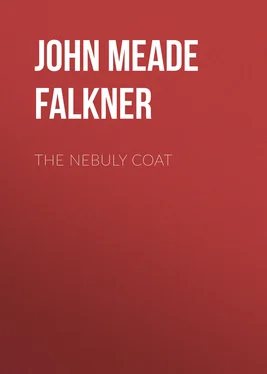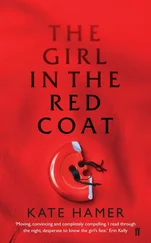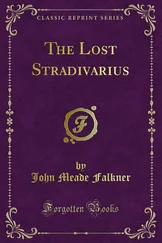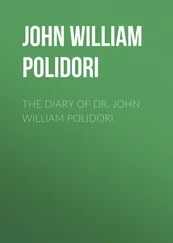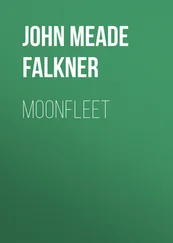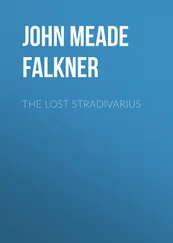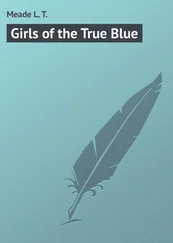John Meade Falkner - The Nebuly Coat
Здесь есть возможность читать онлайн «John Meade Falkner - The Nebuly Coat» — ознакомительный отрывок электронной книги совершенно бесплатно, а после прочтения отрывка купить полную версию. В некоторых случаях можно слушать аудио, скачать через торрент в формате fb2 и присутствует краткое содержание. Жанр: foreign_antique, foreign_home, architecture_book, на английском языке. Описание произведения, (предисловие) а так же отзывы посетителей доступны на портале библиотеки ЛибКат.
- Название:The Nebuly Coat
- Автор:
- Жанр:
- Год:неизвестен
- ISBN:нет данных
- Рейтинг книги:3 / 5. Голосов: 1
-
Избранное:Добавить в избранное
- Отзывы:
-
Ваша оценка:
- 60
- 1
- 2
- 3
- 4
- 5
The Nebuly Coat: краткое содержание, описание и аннотация
Предлагаем к чтению аннотацию, описание, краткое содержание или предисловие (зависит от того, что написал сам автор книги «The Nebuly Coat»). Если вы не нашли необходимую информацию о книге — напишите в комментариях, мы постараемся отыскать её.
The Nebuly Coat — читать онлайн ознакомительный отрывок
Ниже представлен текст книги, разбитый по страницам. Система сохранения места последней прочитанной страницы, позволяет с удобством читать онлайн бесплатно книгу «The Nebuly Coat», без необходимости каждый раз заново искать на чём Вы остановились. Поставьте закладку, и сможете в любой момент перейти на страницу, на которой закончили чтение.
Интервал:
Закладка:
“Oh,” she said between her sobs in a strange and uncontrolled voice—“oh, I am so miserable— everything is so miserable. There are father’s debts not paid, not even the undertaker’s bill paid for his funeral, and no money for anything, and poor Aunt Euphemia working herself to death. And now she says she will have to sell the little things we have in the house, and then when there is a chance of a decent lodger, a quiet, gentlemanly man, you go and abuse him, and say these rude things to me, because he rings the bell. How does he know aunt is out? how does he know she won’t let me answer the bell when she’s in? Of course, he thinks we have a servant, and then you make me so sad. I couldn’t sleep last night, because I knew you were drinking. I heard you when we went to bed playing trashy things that you hate except when you are not yourself. It makes me ill to think that you have been with us all these years, and been so kind to me, and now are come to this. Oh, do not do it! Surely we all are wretched enough, without your adding this to our wretchedness.”
He got up from the stool and took her hand.
“Don’t, Anstice—don’t! I broke myself of it before, and I will break myself again. It was a woman drove me to it then, and sent me down the hill, and now I didn’t know there was a living soul would care whether old Sharnall drank himself to death or not. If I could only think there was someone who cared; if I could only think you cared.”
“Of course I care”—and as she felt his hand tighten she drew her own lightly away—“of course we care—poor aunt and I—or she would care, if she knew, only she is so good she doesn’t guess. I hate to see those horrid glasses taken in after your supper. It used to be so different, and I loved to hear the ‘Pastoral’ and ‘Les Adieux’ going when the house was still.”
It is sad when man’s unhappiness veils from him the smiling face of nature. The promise of the early morning was maintained. The sky was of a translucent blue, broken with islands and continents of clouds, dazzling white like cotton-wool. A soft, warm breeze blew from the west, the birds sang merrily in every garden bush, and Cullerne was a town of gardens, where men could sit each under his own vine and fig-tree. The bees issued forth from their hives, and hummed with cheery droning chorus in the ivy-berries that covered the wall-tops with deep purple. The old vanes on the corner pinnacles of Saint Sepulchre’s tower shone as if they had been regilt. Great flocks of plovers flew wheeling over Cullerne marsh, and flashed with a blinking silver gleam as they changed their course suddenly. Even through the open window of the organist’s room fell a shaft of golden sunlight that lit up the peonies of the faded, threadbare carpet.
But inside beat two poor human hearts, one unhappy and one hopeless, and saw nothing of the gold vanes, or the purple ivy-berries, or the plovers, or the sunlight, and heard nothing of the birds or the bees.
“Yes, I will give it up,” said the organist, though not quite so enthusiastically as before; and as he moved closer to Anastasia Joliffe, she got up and left the room, laughing as she went out.
“I must get the potatoes peeled, or you will have none for dinner.”
Mr Westray, being afflicted neither with poverty nor age, but having a good digestion and entire confidence both in himself and in his prospects, could fully enjoy the beauty of the day. He walked this morning as a child of the light, forsaking the devious back-ways through which the organist had led him on the previous night, and choosing the main streets on his road to the church. He received this time a different impression of the town. The heavy rain had washed the pavements and roadway, and as he entered the Market Square he was struck with the cheerfulness of the prospect, and with the air of quiet prosperity which pervaded the place.
On two sides of the square the houses overhung the pavement, and formed an arcade supported on squat pillars of wood. Here were situated some of the best “establishments,” as their owners delighted to call them. Custance, the grocer; Rose and Storey, the drapers, who occupied the fronts of no less than three houses, and had besides a “department” round the corner “exclusively devoted to tailoring”; Lucy, the bookseller, who printed the Cullerne Examiner , and had published several of Canon Parkyn’s sermons, as well as a tractate by Dr Ennefer on the means adopted in Cullerne for the suppression of cholera during the recent outbreak; Calvin, the saddler; Miss Adcutt, of the toy-shop; and Prior, the chemist, who was also postmaster. In the middle of the third side stood the Blandamer Arms, with a long front of buff, low green blinds, and window-sashes grained to imitate oak. At the edge of the pavement before the inn were some stone mounting steps, and by them stood a tall white pole, on which swung the green and silver of the nebuly coat itself. On either side of the Blandamer Arms clustered a few more modern shops, which, possessing no arcade, had to be content with awnings of brown stuff with red stripes. One of these places of business was occupied by Mr Joliffe, the pork-butcher. He greeted Westray through the open window.
“Good-morning. About your work betimes, I see,” pointing to the roll of drawings which the architect carried under his arm. “It is a great privilege, this restoration to which you are called,” and here he shifted a chop into a more attractive position on the show-board—“and I trust blessing will attend your efforts. I often manage to snatch a few minutes from the whirl of business about mid-day myself, and seek a little quiet meditation in the church. If you are there then, I shall be glad to give you any help in my power. Meanwhile, we must both be busy with our own duties.”
He began to turn the handle of a sausage-machine, and Westray was glad to be quit of his pious words, and still more of his insufferable patronage.
Chapter Four
The north side of Cullerne Church, which faced the square, was still in shadow, but, as Westray stepped inside, he found the sunshine pouring through the south windows, and the whole building bathed in a flood of most mellow light. There are in England many churches larger than that of Saint Sepulchre, and fault has been found with its proportions, because the roof is lower than in some other conventual buildings of its size. Yet, for all this, it is doubtful whether architecture has ever produced a composition more truly dignified and imposing.
The nave was begun by Walter Le Bec in 1135, and has on either side an arcade of low, round-headed arches. These arches are divided from one another by cylindrical pillars, which have no incised ornamentation, as at Durham or Waltham or Lindisfarne, nor are masked with Perpendicular work, as in the nave of Winchester or in the choir of Gloucester, but rely for effect on severe plainness and great diameter. Above them is seen the dark and cavernous depth of the triforium, and higher yet the clerestory with minute and infrequent openings. Over all broods a stone vault, divided across and diagonally by the chevron-mouldings of heavy vaulting-ribs.
Westray sat down near the door, and was so engrossed in the study of the building and in the strange play of the shafts of sunlight across the massive stonework, that half an hour passed before he rose to walk up the church.
A solid stone screen separates the choir from the nave, making, as it were, two churches out of one; but as Westray opened the doors between them, he heard four voices calling to him, and, looking up, saw above his head the four tower arches. “The arch never sleeps,” cried one. “They have bound on us a burden too heavy to be borne,” answered another. “We never sleep,” said the third; and the fourth returned to the old refrain, “The arch never sleeps, never sleeps.”
Читать дальшеИнтервал:
Закладка:
Похожие книги на «The Nebuly Coat»
Представляем Вашему вниманию похожие книги на «The Nebuly Coat» списком для выбора. Мы отобрали схожую по названию и смыслу литературу в надежде предоставить читателям больше вариантов отыскать новые, интересные, ещё непрочитанные произведения.
Обсуждение, отзывы о книге «The Nebuly Coat» и просто собственные мнения читателей. Оставьте ваши комментарии, напишите, что Вы думаете о произведении, его смысле или главных героях. Укажите что конкретно понравилось, а что нет, и почему Вы так считаете.
